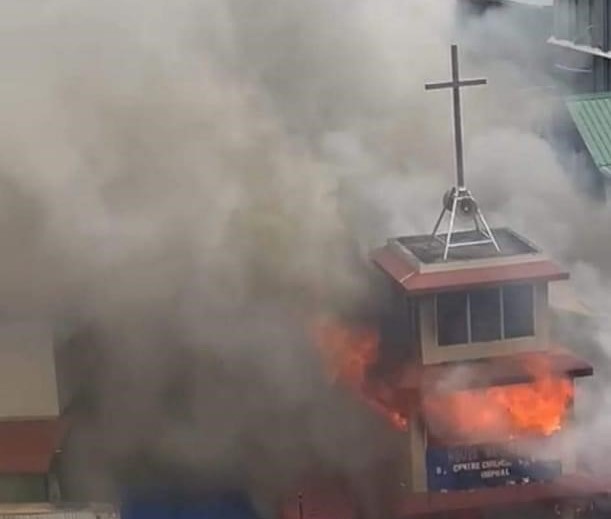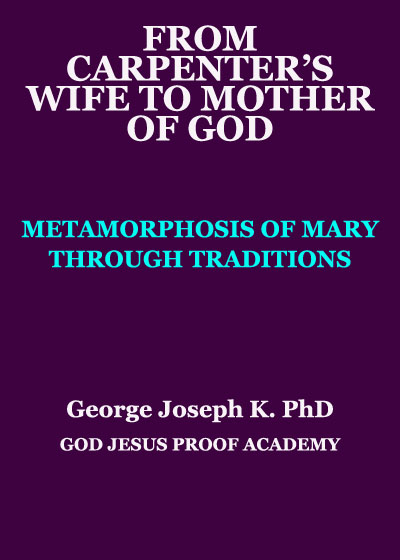
MANIPUR VIOLENCE - ETHNIC OR RELIGIOUS?
Archbishop Dominic Lumon of Imphal made the estimate in a June 15 account of the ongoing ethnic clashes in the state in the far northeast of India that he reportedly shared with his fellow Catholic bishops.
Lumon said in the 11-page document that it was “wrong to categorically say” that the disorder, which has claimed at least 100 lives and displaced more than 50,000 people, was a religious conflict.
But he noted that the clashes between the largely Hindu Meitei people and the predominantly Christian Kuki people included religiously motivated attacks.
“Each of the over 200 Kuki villages attacked had either one or multiple churches, depending on the number of Christian denominations,” he said. “About 249 churches belonging to the Meitei Christians have been destroyed. All these destructions took place with precision within 36 hours of the start of violence.”
Although the Kukis mostly belong to Protestants denominations such as the Baptist Church, 10 Catholic institutions were also reportedly targeted, including St. Paul’s Parish, Sangaiprou, which was badly burned, and Holy Redeemer Parish, Canchipur, which was ransacked and set on fire.
A mob is also said to have vandalized Holy Cross Mission, Kakching Khunou, dragging the altar and statues outdoors and setting them on fire.
Indian priests with links to Manipur state told The Pillar that it was difficult to assess the current situation amid an internet blackout and reporting restrictions. Due to a curfew, even residents of the state were struggling to follow developments and there were many rumors that could not be substantiated, they said. But violence is believed to be ongoing.
Trouble broke out in Manipur, one of India’s smallest and remotest states, when thousands of people gathered May 3 for a rally protesting against moves to include the Meitei under India’s Scheduled Tribes category.
The protesters feared that the designation would give the Meitei people, who account for more than half of the state’s population, greater access to land, jobs, and other resources at the expense of other ethnic groups.
The Meitei live in the state’s more developed central Imphal Valley but are not permitted to settle in the surrounding hilly regions, which constitute 90% of the state. The hill regions are reserved for the local tribal population, who are also allowed to live in the valley.
The May 3 demonstration was organized by the All Tribal Students’ Union Manipur, a group associated with the Kukis, a hill tribe. The gathering descended into violence, though it is unclear what sparked the skirmishes.
In the following days, armed mobs attacked cars, homes, and churches belonging to the Kukis, setting them on fire.
State authorities cut the internet as troops moved in to restore order with permission to “shoot on sight.”
—
Archbishop Lumon — who has led the Imphal archdiocese, which covers the whole of Manipur state, since 2006 — criticized the authorities’ response to the disorder. He accused Indian Prime Minister Narendra Modi of “silence,” interior minister Amit Shah of “cluelessness,” and the local government of “indecisiveness.”
“It cannot shun responsibility and shed off culpability,” he said of the government.
“After 44 days since the unrest began the violence and arson continues unabated especially in the peripheries of the valley region,” Lumon said. “Precious lives have been lost, houses/villages burned or destroyed, belongings vandalized and looted, places of worship desecrated and set ablaze. Over 50,000 people have been displaced and rendered homeless and are languishing in different relief camps and homes of individuals.”
“Many have left the capital Imphal and the state to safer places; many have landed in neighboring state of Mizoram, other northeastern states, metropolitan cities such as Delhi, Kolkata, etc. There is complete collapse of the constitutional machinery in the state.”
He added: “One wonders why President’s Rule [direct rule by India’s federal government] is still not an option.”
Lumon also said that militias had emerged amid the violence that claim to be defending Sanamahism, the traditional religion of the Meitei people.
“Reports are that Meitei Christians are warned with dire consequences if not returned to their original religion. Some pastors have been indicated not to rebuild the churches. There is systematic silencing of the minorities,” he said.
The archbishop added: “The present crisis that the people and the Church in Manipur faces is not an isolated one. There seem to be similar patterns across the country which will find its relevance. [These] patterns and the modus operandi is to be viewed on the broader perspective of the concern of minorities in India.”
Leaders across the Catholic Church in India have condemned the violence.
Cardinal Oswald Gracias, the Archbishop of Bombay and a member of Pope Francis’ Council of Cardinals, expressed shock in May at what he called “the resurgence of persecution of Christians in the peace-loving state of Manipur.”
Archbishop Andrews Thazhath, president of the Catholic Bishops’ Conference of India (CBCI), appealed for nationwide prayers “for peace in the state of Manipur and for warring parties to enter into dialogue and rebuild Manipur into the beautiful, peace-loving place that it was.”
In a June 16 letter at the end of an assembly of Syro-Malabar bishops, Cardinal George Alencherry lamented what he said was the government’s inability to stop the violence.
“It is shameful that even though Christian churches have been destroyed and thousands have been left homeless, those at the helm of the administration are still not ready to condemn such activities or reject the rioters,” the Major Archbishop of the Syro-Malabar Church wrote.
